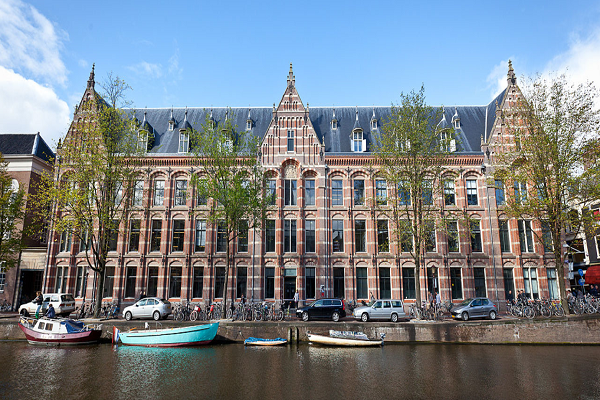University of Amsterdam: Viewing computer science through the lens of cryptography
Inaugural lecture
‘To simply illustrate what cryptography is about, I will speak during my inaugural lecture a few sentences in Swiss-German’, says Christian Schaffner, himself of Swiss descent. ‘Then I know that only the few Swiss people in the audience will understand me, but non-Swiss people not.’ Of course, speaking in Swiss-German in general is not so safe after all if you only want to communicate with one person, but it illustrates the point. Schaffner: ‘You choose a form of encoding and you open a channel of communication with whomever can decode it.’
In his inaugural lecture entitled ‘A cryptographic view on computer science’ Schaffner views computer science through the lens of cryptography, touching on theoretical concepts like the difficulty of solving computational problems and how these are used in a cryptographic context.
Cryptography goes back millennia in history. In the middle of the 20th century, the invention of the computer revolutionized the field. However, the predicted arrival of the quantum computer will give cryptography a completely new twist, and that’s the focus of Schaffner’s own research. Important current cryptographic standards that allow us to do secure online banking or shopping can be cracked with a sufficiently powerful quantum computer.
‘This is not just a problem in the future’, says Schaffner, ‘but it is already a problem now.’ How can that be? Well, malicious persons can simply store secure messages, wait until a quantum computer becomes available, and then still crack the old, encrypted messages. Schaffner: ‘Sometimes you will not gain anything from it, but sometimes you will gain important secrets. If the law requires certain information to be kept secret for twenty years, like state secrets or medical data, we are already in trouble now.’
Quantum cryptography is like a double-edged sword: on the one hand it can break classical encryption (such as RSA or Diffie-Helman public-key cryptography), on the other hand it can make entirely new quantum encryption possible, safe against attacks with a quantum computer. Schaffner made important scientific contributions on both sides. With his appointment as a professor, the university gives a new boost to a field which is already strong in the Amsterdam area. Schaffner is also the chairman of the innovation hub Quantum.Amsterdam, founded by the Dutch research center for quantum software and applications QuSoft, Centrum Wiskunde & Informatica (CWI) and UvA.
Renewal of the Theory of Computer Science group
In recent years, an entire generation of computer scientists who shaped the UvA group Theory of Computer Science ((TCS) has retired: Jan Bergstra, Piet Rodenburg and Alban Ponse. In October also Inge Bethke will retire. After the retirement of group leader Ponse in April 2022, Schaffner became the new group leader and it is up to him to give a new face to the group.
‘With my background obviously the focus of the group will shift’, says Schaffner. ‘Previously the emphasis was on the verification of programmes, on formal languages and process algebra. With my arrival, quantum computing and cryptography will become focus areas, but I also want to broaden the group into other areas of theoretical computer science. Exactly how the group will develop, depends on the people we manage to attract. In September, Nicolas Resch, who specializes in error correcting codes, will start. And a second new permanent group member is being hired in the area of quantum computing.’
Besides the current theory courses taught in the BSc Informatica by the remaining TCS group member Steven de Rooij, students will be able to follow more courses organized by the Theory of Computer Science group: Information theory, taught by Nicolas Resch, Modern cryptography, taught by Schaffner, and a new course entitled Quantum cryptography, that Schaffner will teach together with Florian Speelman and that will start in 2023.
Already before the corona crisis forced classes to be given online, Schaffner used the concept of ‘flipping the classroom’ for his courses. ‘The idea is that the classroom instruction, traditionally given physically, is offered online’, says Schaffner, ‘and the students do it at home. On the other hand, students come physically to class to actively solve exercises together. We use online tests to check that the students actually come prepared to the physical classes.’
Schaffner expects that the future society will need many more people who understand quantum computing, quantum information and quantum cryptography. ‘We are thinking about how we want to contribute to that demand in the future. In any case, at UvA we will be educating students to obtain a solid background in these quantum topics.’

